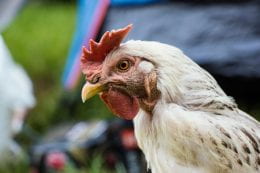
The H5N1 Bird Flu (Avian Influenza A) is affecting egg supplies across the country. Currently, there is no person-to-person spread of the virus and public health risk is low.
But the poultry population has been drastically affected, with a loss of over 166 million poultry, leading to shortages of eggs in grocery stores. It has also affect dairy cows in 17 states.
If eggs are in short supply in your area, here are some egg-less meal options from the Partnership for Food Safety Education.
- Hearty Breakfast Casserole
- Vegetarian Lasagna
- Jambalaya Casserole
- Classic Vegan Cheesecake
- Vegan Key Lime Pie
Iowa State University Extension also has tips and tricks in their blog:
Learn more about the current status of Avian Influenza A from the Centers for Disease Control and Prevention (CDC).
The CDC has many tips on prevention and treatment of Avian Influenza A, including safe food preparation.

